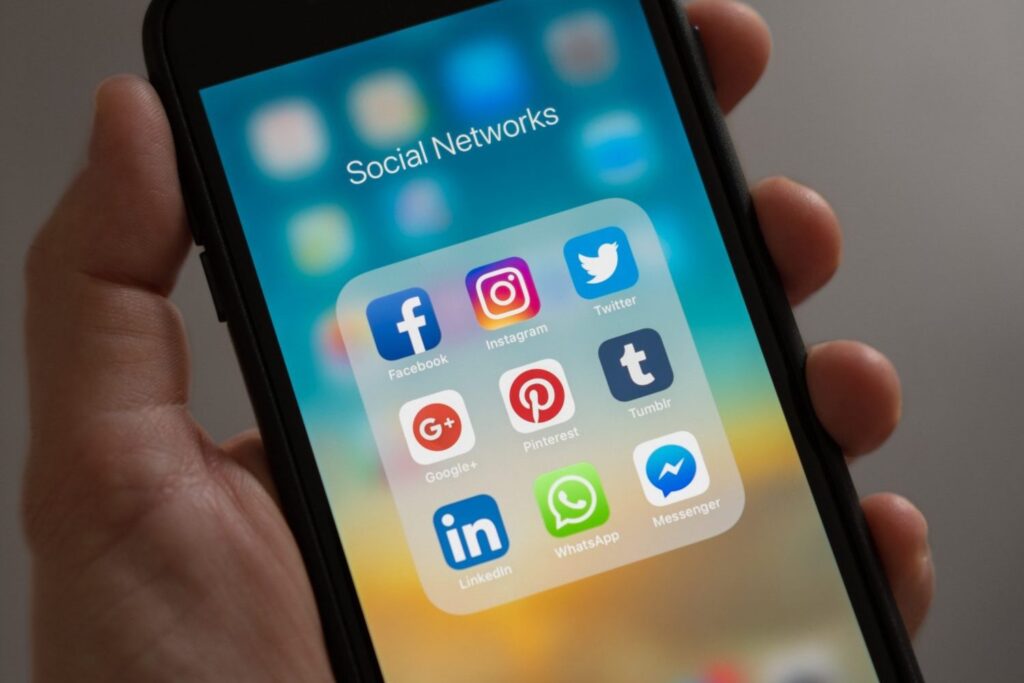Nowadays, most of us will have at least one or two, maybe even more, social media platforms that we engage with repeatedly daily. We use it to communicate with friends near and far, and with family who we might not be able to see regularly. We also use it to follow our favourite celebrities to get a small insight into their world. But should we believe all that we see? Is it a true reflection of someone’s life? And what effect does this have on us and our mental health?
What Do People Share On Social Media?
Most people will share an idealized version of themselves on their social media platforms. They will choose selectively from their thoughts, images and experiences to only share the best ones with those that follow them on social media. People will jump to share when they’ve had a wonderful day with their friends, or had a new haircut or outfit. However, you won’t very often find people writing about their bad days, or how they are feeling deep down or sharing a photo of themselves that they don’t like.
Celebrities in particular will bombard their followers with selfies or images of themselves in new outfits most likely more than once a day. It is important to remember that celebrity accounts are usually run by advisors or managers and posts are heavily vetted first.
Should We Believe What We See?
When you aren’t feeling too great yourself, maybe after having a bad day, it is easy to find yourselves scrolling aimlessly through social media to get lost in other peoples worlds. We come across pictures of people happily laughing with their children, posing in a mirror, or many post updates, and it is easy to believe that what we are seeing is the truth.
It is important that what you see on social media you take with a pinch of salt. The picture of a mum playing with her children happily is a snapshot of a moment, it does not show the tantrums after that when the children are asked to tidy away their toys.
A picture of someone wearing a flattering new outfit that shows off their assets is carefully posed by leaning back so that their tummy looks flat. The reality is, even those people have skin rolls when sitting down. Every person does!
How Is It Done?
There are so many different filters available in different photography apps that can alter people’s appearances so drastically they become something new. It is so easy now for people to make their faces appear smooth and flawless, make their eyebrows become the perfect shape and enhance their lips to be fuller. Some people rely on these filters for their photos all the time so that any image of them is not a true reflection of how they look in person.
Celebrities on social media will post photos that have been heavily photoshopped to remove their flaws. They will have their waists made to appear smaller or their bums to look bigger. This will cause many of us to believe in “idealized” body types.
There are lots of celebrities who do try to be more open and honest on their platforms and these are great for helping us to see the truth behind the pictures. We all want people to look and see the best of us, and that is why we share what we share, but sometimes we should be honest and remove the illusion.
How Does This Affect Our Mental Health?
Scrolling through endless “perfect” images creates an “idealized” body type. If we then don’t feel we have that body type it can have serious effects on us and our mental health. Studies have shown that for women who want to lose weight, the more time they spent on social media resulted in more eating disorders. Research has also concluded that young women who spend more time on social media may feel more concerned about their bodies because they compare their appearance to others.
Seeing someone’s “ideal” life and family on social media can make us heavily reflect on our own lives. If we don’t have a big house, well-dressed children and designer items, we worry that our lives aren’t good enough. We resent what we do have because it isn’t what they have, and that is not healthy. We are all viewing only the picture those people want us to see and we need to remember that.
How To Use Social Media In A Positive Way
Social media can negatively affect your body image, mood, and overall mental health, but there are ways to counteract this.
– Take a break. If you find you feel worse after scrolling, take a step back and see how you feel after disengaging. Think about not looking at that platform for a few hours, days, weeks. Whatever you need.
– Unfollow accounts that don’t make you feel good. Pay attention to which accounts, people, and images lift your mood. Remove any accounts that make you feel bad about yourself and replace them with honest and open positive accounts that reflect real life.
– Find a community. Follow body positive accounts and join support groups that can help shift your mindset about “idealized” body types.
– Don’t compare your life to others. Live your own life and appreciate what you have. Remember you often only see the ‘highlight reel’ of those you follow and their life is far more boring than you probably believe!
All clinicians at Oxford CBT practice Cognitive Behavioural Therapy, or are Psychologists, providing evidence-based interventions and support for a range of issues for both young people and adults. If you would like to book an appointment you can do so on our online booking portal. If you have a question please get in touch via our online contact form or call us on 01865 920077.



